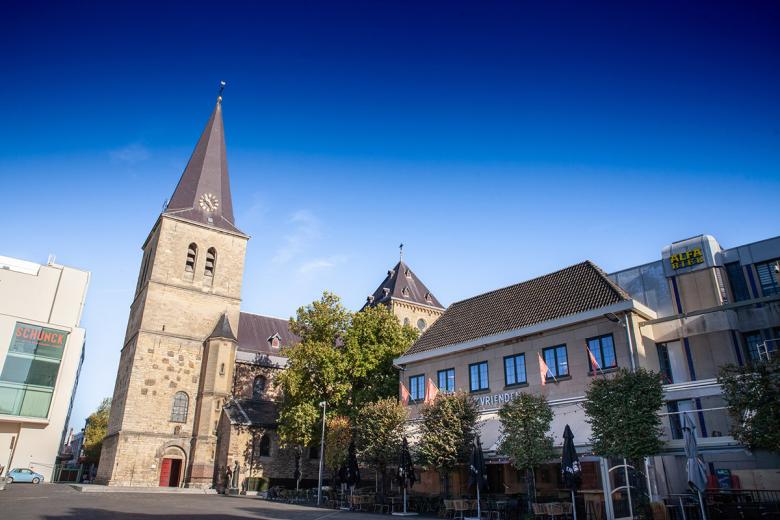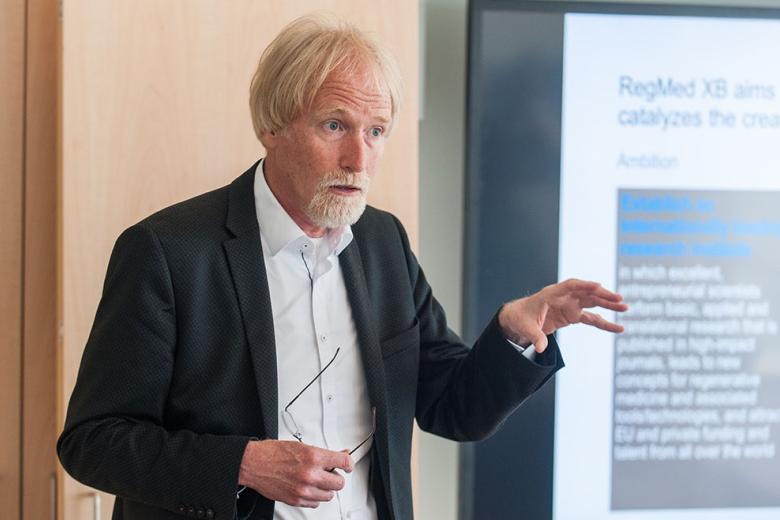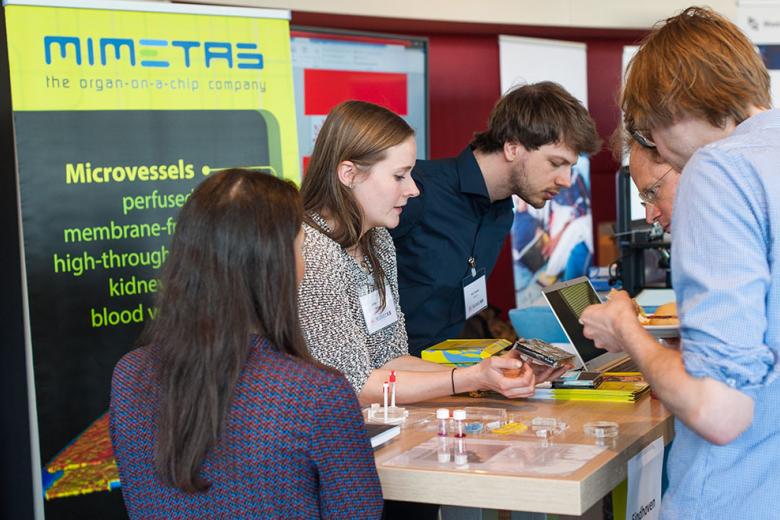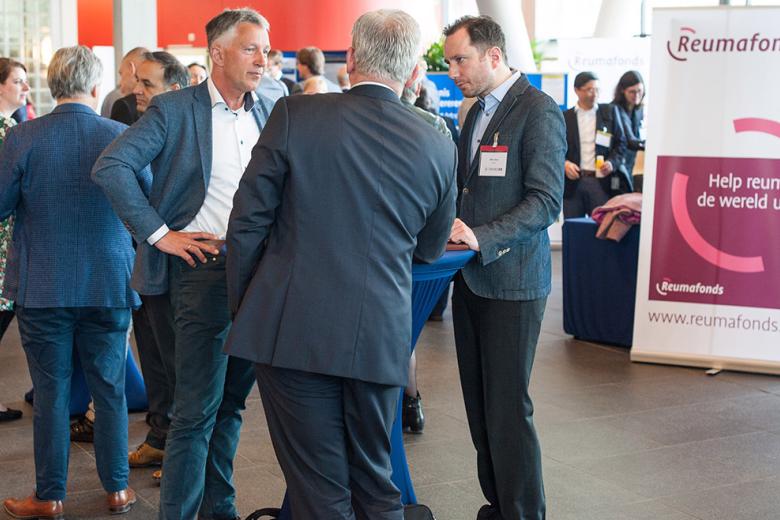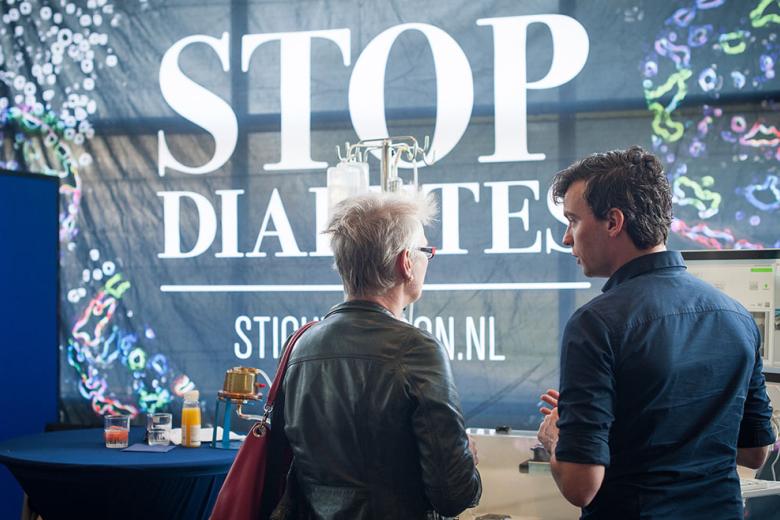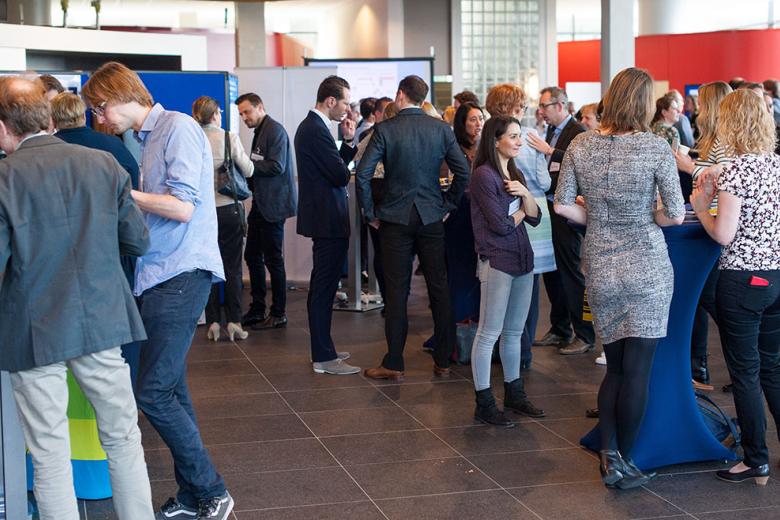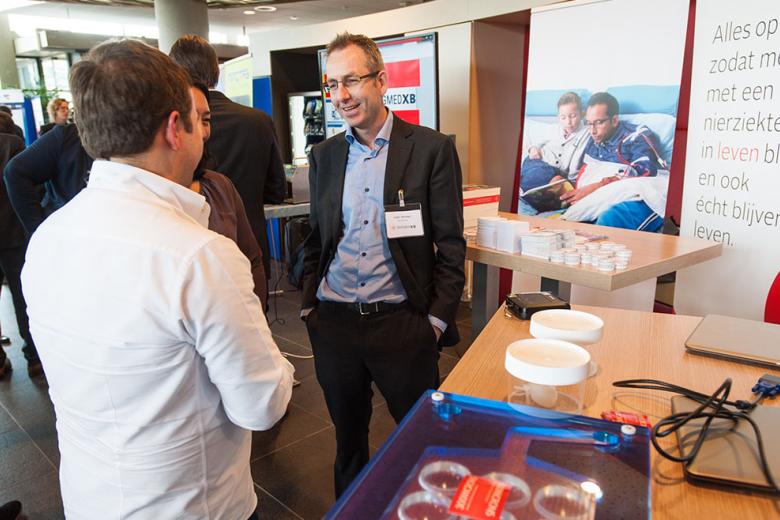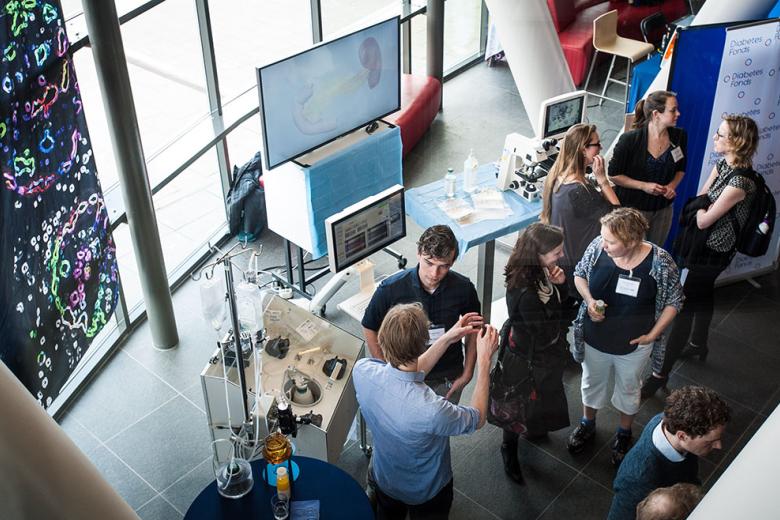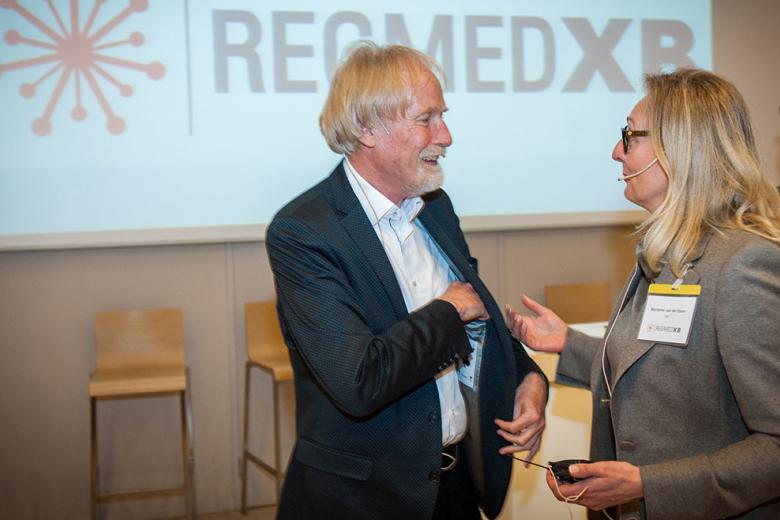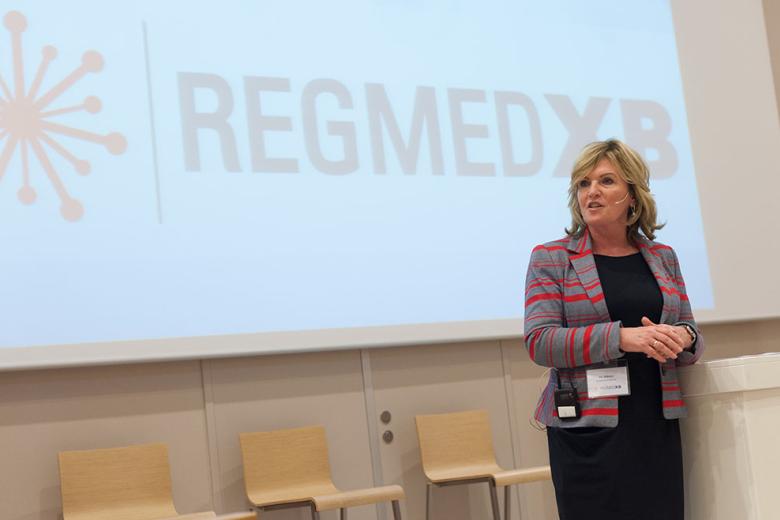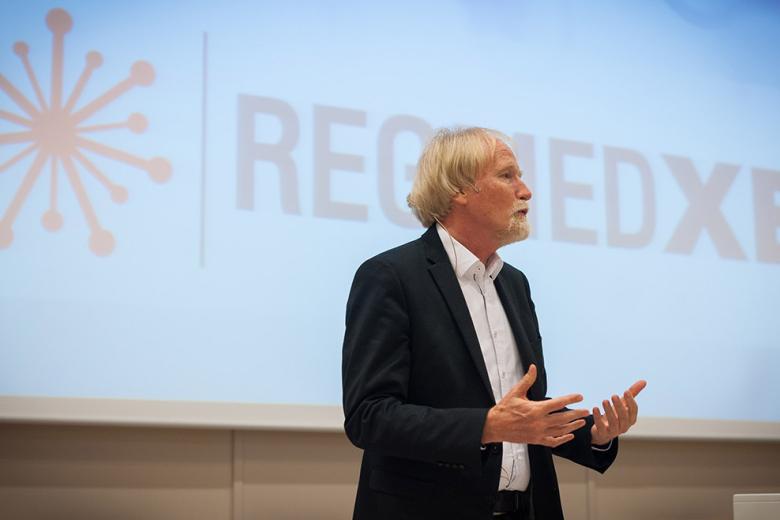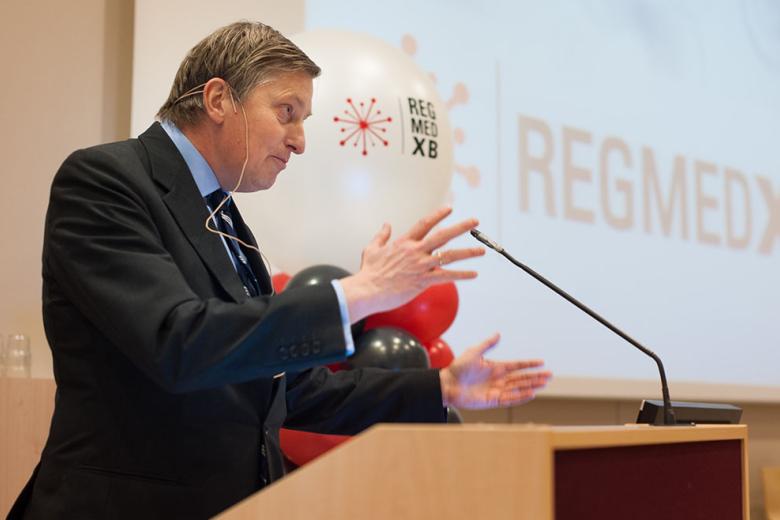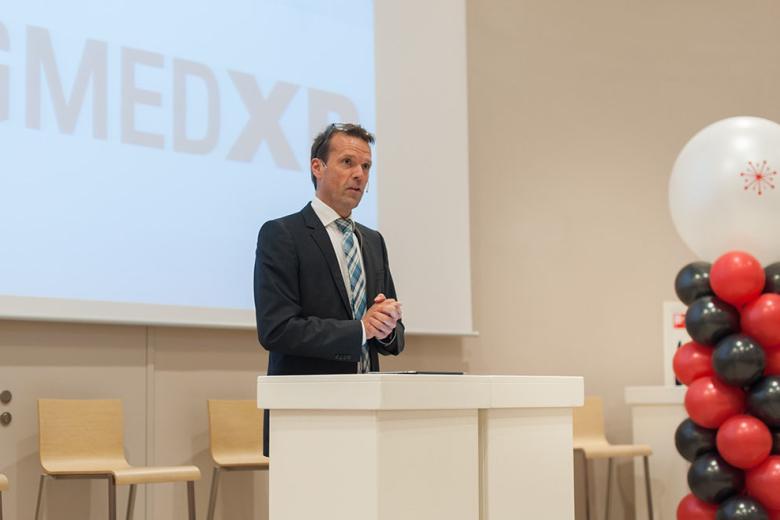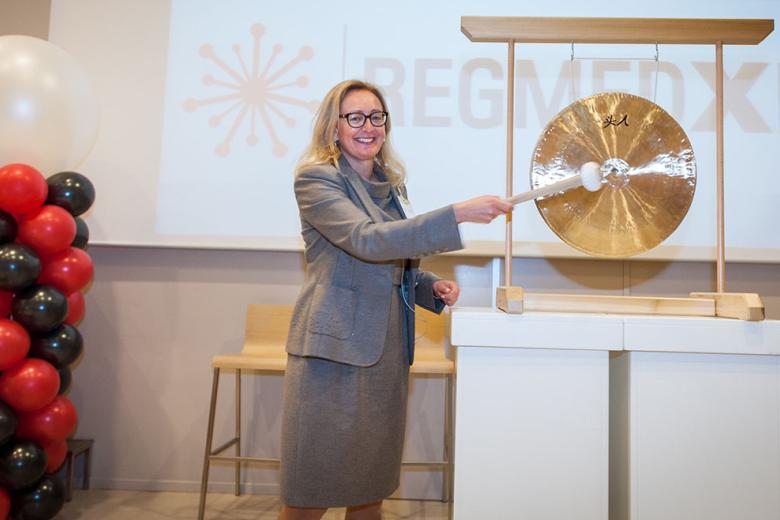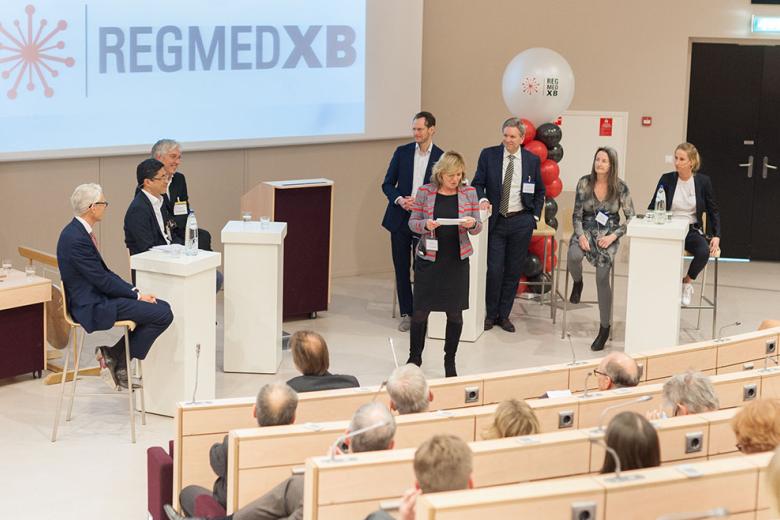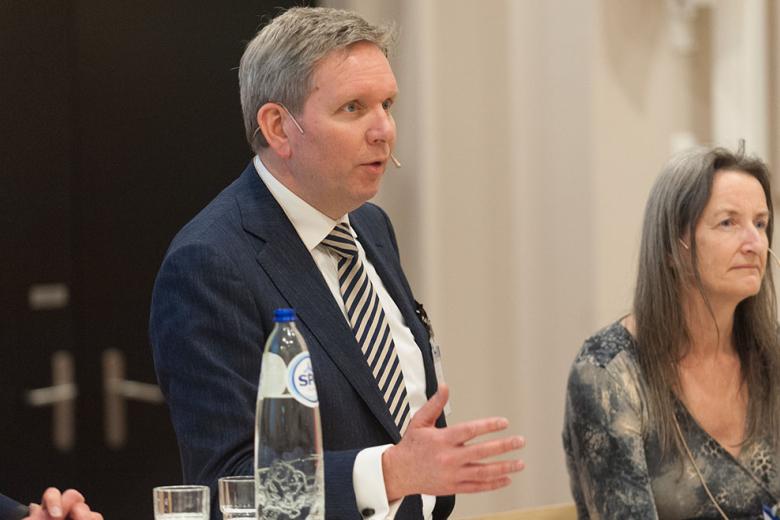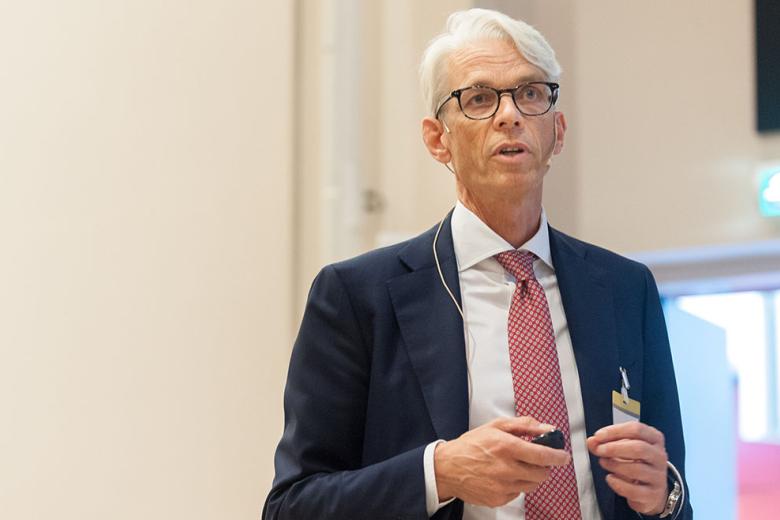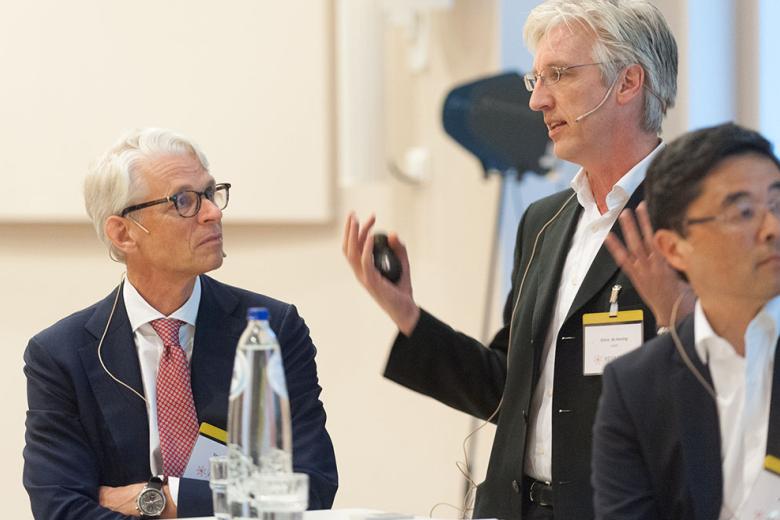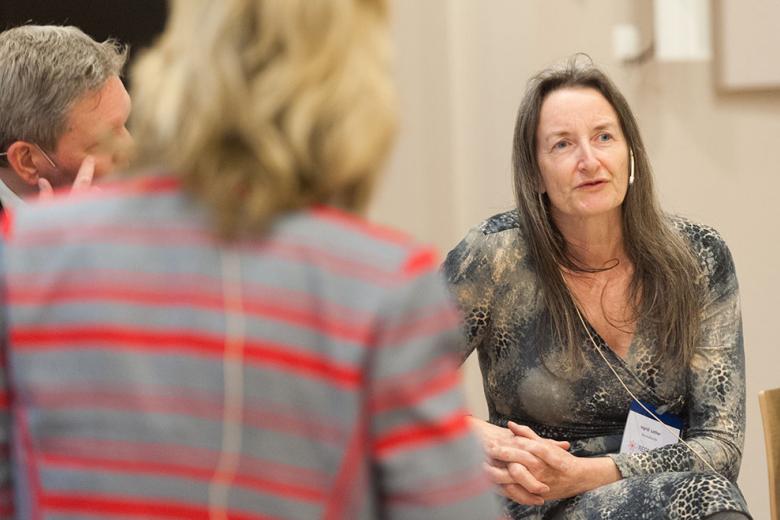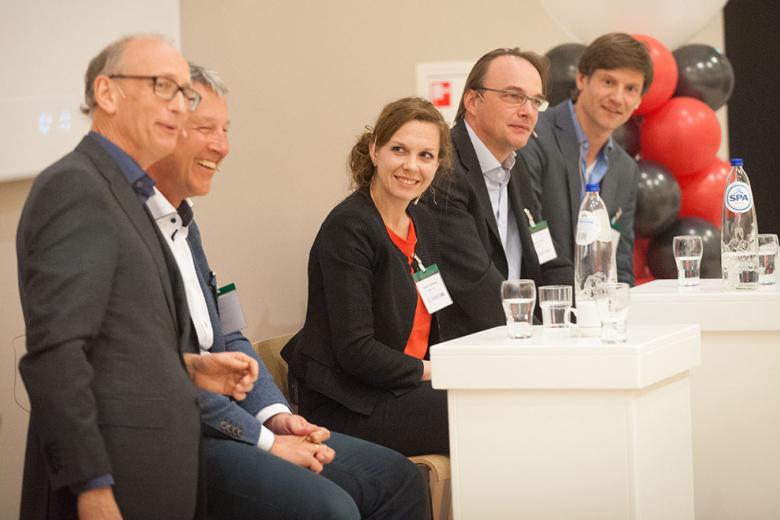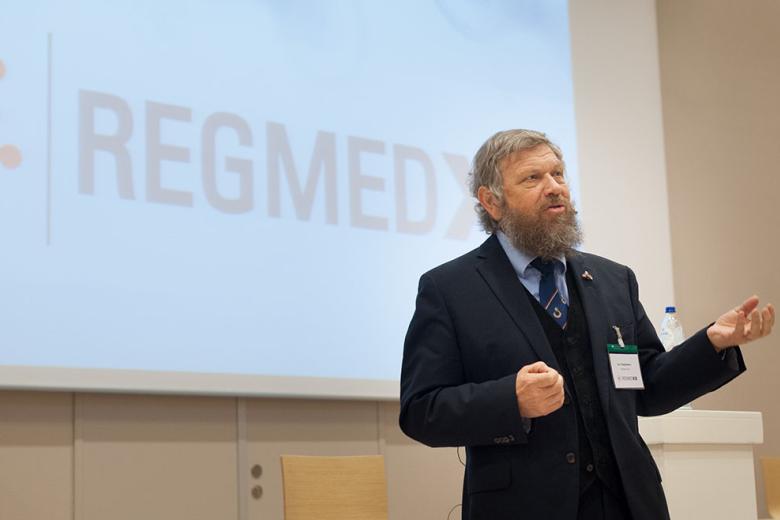Launch new institute for regenerative medicine
On 30 March, RegMed XB, a new cooperation for regenerative medicine was launched in the Leiden University Medical Centre (LUMC). The initiative for RegMed XB was taken by Maastricht University professor Clemens van Blitterswijk (MERLN).
Regenerative medicine aims to heal patients by restoring tissues and organs. This means that diseased tissue and organs can be restored, making transplants no longer necessary. The research of RegMed XB consists of three research tracks, focusing on kidney failure, diabetes type 1 and arthrosis. Researchers of Maastricht University, the LUMC, Utrecht University and the Eindhoven University of Technology collaborate in these research tracks. In Belgium the University of Leuven and the Flemish Institute for Biotechnology participate. Also several companies of the Brightlands Health Campus are affiliated with RegMed XB.
For more information about RegMed XB, see this press release.
Photo gallery
Photography: Arno Massee
Also read
-
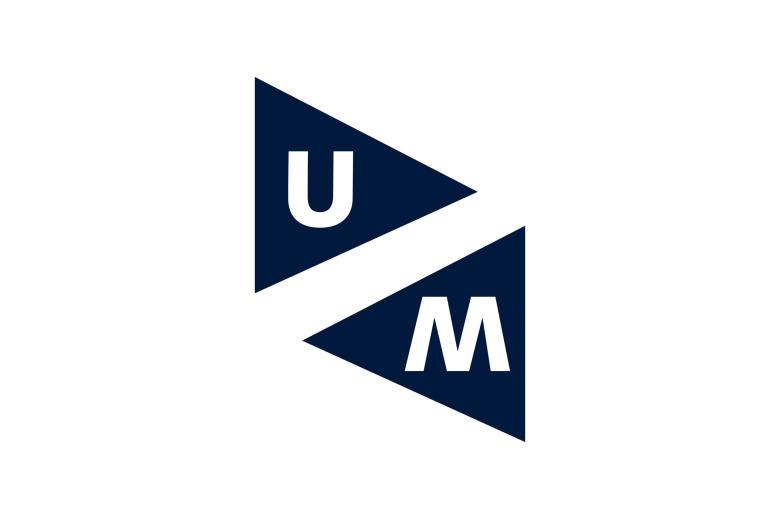
-
UM seeks new balance between the university and student associations
Maastricht University is suspending its relationship with student associations Tragos and Circumflex until further notice. Discussions with the boards of these associations have revealed that agreements outlined in the Code of Conduct have not been upheld. Experience from recent years shows that...
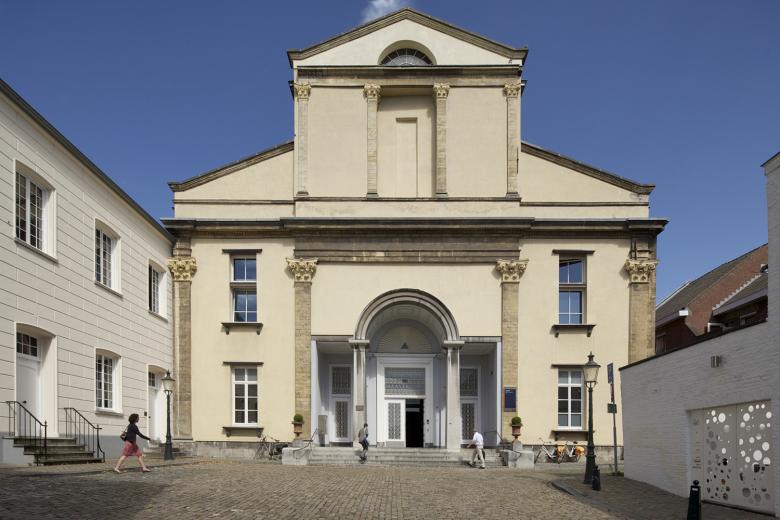
-
Municipality of Heerlen, Parkstad Urban Region and UM invest 6 million in collaboration
Heerlen grants a one-time contribution of €1,478,050 to Maastricht University as part of the Regio Deal application ‘Fundament onder UM-onderwijs in Heerlen’. This amount comes from the Fonds Economische Structuurversterking (FES). The funding will help establish university education facilities in...
